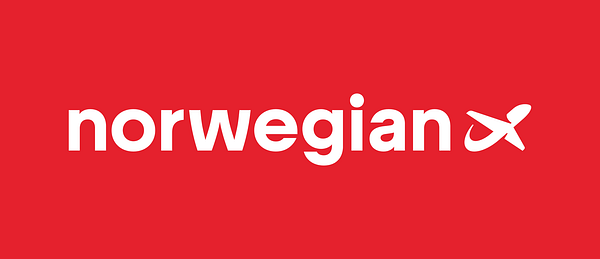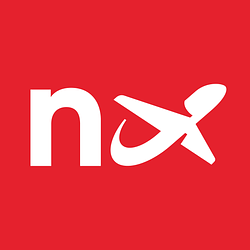Press release -
Norwegian reports strong improvement in earnings in 2015
Norwegian’s 2015 results are characterised by high load factors, continued fleet renewal and moderate capacity growth. The company reported a high load factor throughout 2015, which averaged at 86 per cent. The pre-tax result improved by 1.7 BNOK (£137 million), compared with last year.
In 2015, the company reported a net profit of 75 MNOK (£6 million). The figure was heavily influenced by an unrealised loss on fuel hedging for 2016 and 2017, which makes up 800 MNOK. Adjusted for such unrealised hedging, the 2015 pre-tax results was 875 MNOK (£70 million). This was a strong improvement compared to -1.168 MNOK the previous year.
The company’s total revenue was 22.5 BNOK (£1.8bn) - an increase of 15 per cent. The production growth (ASK) increased by 5 per cent, which illustrates a breather in the company’s expansion, explained by phasing out older aircraft whilst adding new aircraft to the fleet. The load factor remained high at 86 per cent in 2015, up 5 percentage points from the year before. Norwegian carried close to 26 million passengers in 2015, an increase of 7 per cent from 2014.
Fourth quarter 2015
For the fourth quarter, the underlying result increased by approximately 500 MNOK. The net loss before tax of 703 MNOK was mainly related to fuel hedging for 2016 and the depreciation of the Norwegian krone. By transferring Norwegian’s fleet to its subsidiary Arctic Asset Aviation Ltd. (AAA), the value of the aircraft has increased in line with the dollar. This has had a positive effect of 88 MNOK on the equity for the fourth quarter and 421 MNOK for 2015.
The company’s total turnover in the fourth quarter was 5.3 BNOK, an increase of 16 per cent from the same quarter in 2014. Whilst the international traffic increased by 19 per cent, domestic Scandinavian routes also improved with an increase of 5 per cent. With few empty seats the load factor increased by 4 percentage point to 85 per cent.
The airline carried 6.13 million passengers during the fourth quarter, which represents a passenger growth of 9 per cent.
“We enter 2016 with favorable fuel costs and one of the youngest fleets in Europe, which presents a significant competitive advantage. We see a good demand for quality flights at affordable fares, but the unpredictable political decision to introduce passenger tax in Norway is creating an uncertain situation in this market. It is a paradox that the company with the lowest emissions seems to be punished the hardest,” says CEO Bjørn Kjos.
For detailed information, please see pdf attached.
Media Contacts:
CFO Frode Foss, tel. +47 91 63 16 45
Chief Communications Officer Anne-Sissel Skånvik, tel + 47 97 55 43 44
Topics
Categories
Norwegian Air Shuttle ASA, commercially branded “Norwegian”, is a low-cost airline listed on the Oslo Stock Exchange. Norwegian is the world's seventh largest low-cost airline. The company reported its highest ever passenger figures in a single year with almost 26 million passengers in 2015. Norwegian has a route portfolio that stretches across Europe into North Africa and the Middle East, as well as long-haul flights to the US and Southeast Asia. The company has over 400 routes to more than 130 destinations and employs approximately 5,500 people. The company has several hundred undelivered aircraft on firm order. Norwegian was founded in 1993 and its headquarter is in Fornebu, Norway. Norwegian offers better leg room than most competitors, in-flight WiFi on short haul, a fleet of around 100 aircraft with an average age of only four years; one of the youngest fleets in the world. In 2013, 2014 and 2015, Norwegian was voted Europe’s best low-cost carrier of the year by the renowned SkyTrax World Airline Awards. Norwegian was also the first airline to be awarded the World's best low-cost long-haul airline in 2015 by SkyTrax. In 2014, Norwegian also won three prizes at the prestigious Passenger Choice Awards for Best Airline in Europe, Best Inflight Connectivity & Communications and Best Single Achievement in Passenger Experience for its moving map on the 787 Dreamliners. In addition, Norwegian was awarded Europe's best low-cost airline by AirlineRatings.com for the second year running.


